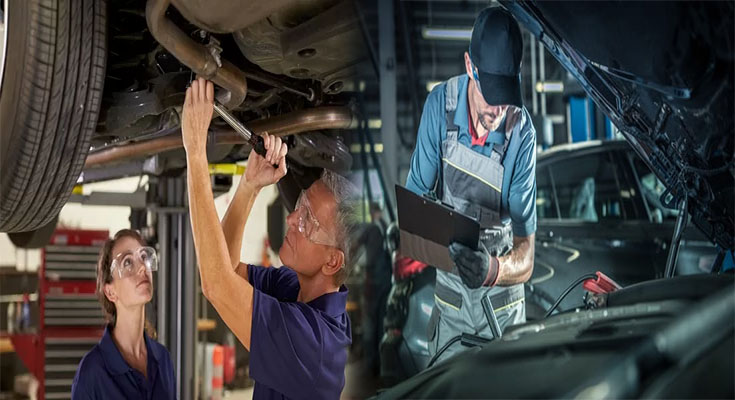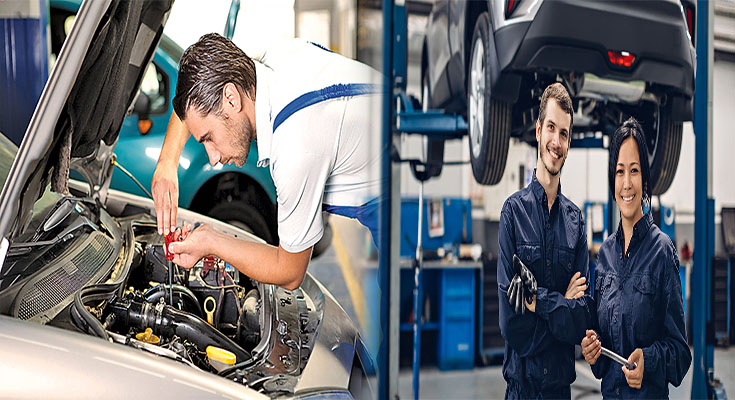In the dynamic and ever-evolving automotive industry, the role of automobile mechanics is crucial in ensuring the safe and efficient operation of vehicles. To stay competitive and excel in their profession, professional automobile mechanics must embrace the concept of continuing education. By pursuing ongoing learning opportunities, mechanics can expand their knowledge, enhance their skills, and adapt to the latest advancements in vehicle technology. Let’s delve into the importance of continuing education for professional automobile mechanics and explore how it can contribute to their success:
Importance of Continuing Education for Professional Automobile Mechanics
- Keeping Pace with Technological Advancements: Continuing education enables mechanics to stay updated with the latest technological advancements in the automotive industry, such as hybrid and electric vehicle technologies, advanced diagnostics systems, and digital service platforms.
- Enhancing Diagnostic Skills: Ongoing training helps mechanics improve their diagnostic skills and proficiency in troubleshooting complex vehicle issues, leading to more accurate and efficient repairs.
- Ensuring Safety and Compliance: Continuing education programs emphasize safety protocols, environmental regulations, and compliance requirements, equipping mechanics with the knowledge and practices necessary to maintain a safe working environment and adhere to industry standards.
- Boosting Career Opportunities: By investing in their professional development through continuing education, mechanics can enhance their qualifications, credibility, and employability, opening doors to career advancement and higher-paying opportunities.
- Building Customer Trust: Mechanics who actively engage in continuing education demonstrate a commitment to excellence and a dedication to providing high-quality service. This commitment fosters trust and loyalty among customers, leading to a positive reputation and strong customer relationships.
Ways Professional Automobile Mechanics Can Pursue Continuing Education
- Industry-Specific Training Programs: Enroll in specialized training courses and workshops that focus on topics such as hybrid and electric vehicle technology, advanced diagnostics, and specific vehicle manufacturers’ systems.
- Certification Programs: Pursue industry certifications, such as those offered by the Automotive Service Excellence (ASE) or vehicle manufacturers, to validate expertise and demonstrate professionalism in the field.
- Online Learning Platforms: Take advantage of online learning platforms and webinars that offer convenient and accessible resources for acquiring new skills and knowledge, especially in emerging areas of automotive technology.
- On-the-Job Training: Collaborate with experienced technicians and mentors within the workshop to gain practical hands-on experience, learn best practices, and troubleshoot real-world vehicle issues.
- Attend Conferences and Seminars: Participate in automotive industry events, conferences, and seminars to stay informed about industry trends, network with professionals, and learn from subject matter experts.
- Self-Study and Research: Dedicate time to self-study and research on topics relevant to automotive mechanics, such as new vehicle systems, diagnostic tools, and repair techniques, to expand knowledge beyond traditional training programs.
The Future of Professional Automobile Mechanics
As the automotive industry continues to evolve with advancements in vehicle technology, connectivity, and automation, the role of professional automobile mechanics will become increasingly complex and multifaceted. Embracing continuing education as a cornerstone of professional development will be essential for mechanics to thrive in this dynamic landscape.
By investing in continuous learning, staying abreast of industry trends, and honing their skills through ongoing education, professional automobile mechanics can position themselves as trusted experts in the field and adapt effectively to the changing demands of the automotive industry. Through a commitment to lifelong learning and professional growth, mechanics can navigate challenges, seize opportunities, and elevate the standard of service they provide to customers and the automotive community at large.













